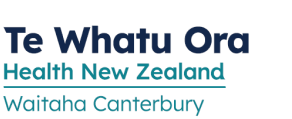What does it do?
Ranitidine is used to treat and prevent various stomach and gut problems, such as indigestion. It reduces the amount of acid produced by the stomach.
How should you take it?
Take ranitidine regularly as directed.
Swallow the tablets whole with a glass of water.
Measure the liquid carefully with an oral syringe or measuring spoon.
What if you forget a dose?
Take the missed dose as soon as possible. If it is close to the time for your next dose, skip the missed dose and carry on as normal. Do not take two doses at the same time.
Can you take other medicines?
Some medicines available without a prescription may react with ranitidine including:
- products containing calcium, iron or magnesium, such as antacids (e.g. Mylanta®) or multivitamins. These products should be taken at least 1 hour before or 1 hour after taking a dose of ranitidine.
Tell your pharmacist or doctor about all medicines or treatments that you may be taking, including vitamins, herbal products (e.g. St John's wort) or recreational drugs.
What side effects might you notice?
| Side Effects | Recommended action |
|---|---|
|
Dizziness, headache, tiredness Stomach upset Cough |
Tell your doctor if troublesome |
If you notice any other effects, discuss them with your doctor or pharmacist.
Other information:
- Tell your doctor if you have kidney or liver problems.
- Tell your doctor if you are pregnant, planning to become pregnant, or breastfeeding.
This leaflet contains important, but not all, information about this medicine.
Prepared by the MyMedicines Committee at Christchurch Hospital, Te Whatu Ora - Waitaha, New Zealand. December 2017
For more general information about this sheet and its contents, see: What does a My Medicines sheet cover?
Te Reo Māori
Te Reo Māori information sheets supported by Health Quality and Safety Commission New Zealand
Web links for this sheet in different formats
Click on buttons to copy web addresses for this leaflet:
If your browser does not automatically copy these links use its copy command instead.
About My Medicines
My Medicines Patient Information Leaflets (PILs) contain important, but not all, information about the medicines they describe.
For more information about the sheets, see: What does a My Medicines sheet cover?
My Medicines is developed by a team at Te Whatu Ora – Waitaha. Our team is made up of doctors, pharmacists, and a non-medical person to help us keep to plain language. We also discuss our information with specialist health professionals or groups when needed

